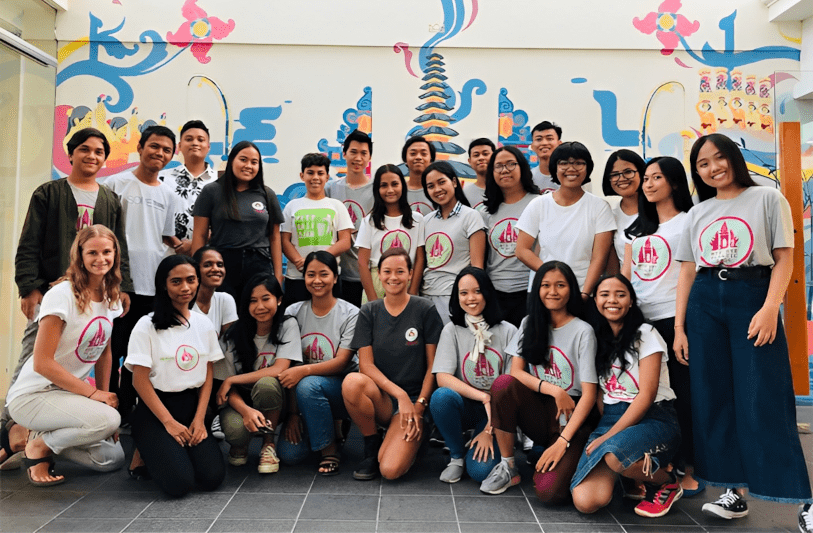Sisters Melati and Isabel Wijsen attended Green Bali School which won the Zayed Sustainability Prize in the Global High Schools category in 2017. The sisters are internationally recognised for their work with both Bye Bye Plastic Bags (BBPB), a youth-led movement to reduce plastic pollution on Bali's beaches and YOUTHTOPIA, a learning platform designed to support young changemakers. Their school used its Prize funding to build an innovation lab, which nurtures the work of even more young leaders in their community. We caught up with the sisters to learn more about what they are doing now and what’s next for them.
1. What inspired you to start the Bye Bye Plastic Bags initiative, and what were some of the challenges you faced in the early days of starting it?
The journey began in 2013 when we were 10 and 12 years old. Without a formal business plan or strategy, we joined a group of passionate young individuals determined to rid Bali of plastic bags. We encountered several challenges at the outset, including the task of shifting people's mindsets by raising awareness about the detrimental effects of plastic and encouraging them to adopt new habits.
Additionally, we recognised the need for the private sector to expedite the adoption of sustainable alternatives to plastic packaging and called for governments and leaders to establish more comprehensive policies and regulations to support our cause.
2. What have been some of the most impactful outcomes of your initiative so far, both in terms of reducing plastic waste and raising awareness about the issue?
One of the most impactful outcomes of our initiative has been the establishment of a social enterprise that not only empowers women but also produces alternative bags to address plastic pollution. Additionally, we have distributed over 10,000 educational booklets to students, raising awareness about plastic pollution and inspiring young people to take action.
Another significant achievement is our annual event called Bali's Biggest Clean Up, which has mobilised more than 80,000 individuals on the island of Bali. In our most recent edition in 2019, we successfully collected and properly disposed of over 40 tonnes of plastic waste, making a substantial impact in reducing plastic pollution.
3. Have you been able to scale your initiative beyond Bali, and what strategies have been most effective in getting other communities and schools to adopt your model?
Yes, we have around 60 teams around the world. We believe in the power of youth through peer-to-peer engagements, and we always encourage and inspire young people to start taking action in their own communities.
4. Looking forward, what are your plans for the future of Bye Bye Plastic Bags, and what role do you see young people playing in driving sustainability and environmental action more broadly?
Now that there is a plastic bag ban in place in Bali, we are focusing on the implementation of it and to keep growing globally with the same mission. Education will always be our focus as we believe that real change happens in the classroom. BBPB will continue to grow its global community. As we are all about empowering youth, our outreach has led to our newest enterprise called YOUTHTOPIA, a learning platform for young change makers. Check it out at www.youthtopia.world.
.svg?iar=0&hash=670E3638BC16C0DD69B262DD1184DEA8)


